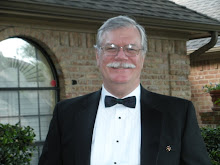The use of meaningless superlatives as opposed to specific, quantifiable statements made by a candidate to describe their work experience raises the alarm in my recruiting frontal lobe and can allow for a quicker go/no-go interview decision and ultimately a good hiring decision – though maybe with another candidate. While we need to entertain candidates that can toot their own horns and demonstrate a “fire in the belly” passion for their chosen work, for me a little humility and less grandstanding is far better in the long run especially from a Team perspective.
You may be surprised but some of the words we’re talking about include, among others - “Driven”, “Effective”, “Energetic”, “Excellent”, “Demonstrated”, “Exceptional”, “Extraordinary”, “Good”, “Hard Working”, “Outstanding”, “Seasoned”, “Strong”, “Motivated”, “Vitally” and one of my favorites - “Visionary.” It’s redundant and a given that qualified candidates should have these qualities.
My perspective is also that, whether or not we see candidates using weasel words/phrases or useless extraneous terms to describe themselves to that extent, the real point of this post and the other side of the coin is that we also need understand that up to an estimated 53% of all candidates literally fake their resumes. Many more will fudge or discreetly take a title or responsibility and tweak it to the dark side; what some now call resume padding. Examples of famous folks that have fudged on their resumes include former Notre Dame Football Coach, George O'Leary; former Chief Executive of RadioShack, Dave Edmondson; former FEMA Director Michael Brown and then there’s Joe Biden… Admittedly these are folks that occupy the upper echelon of their chosen professions, but the fakery is even more omnipresent as you dip towards entry level positions.
As author David Callahan opines in his 2004 The Cheating Culture: Why More Americans Are Doing Wrong to Get Ahead, cheating is pervasive in our society. With a widespread winner take all philosophy where you gain a benefit whatever the cost, it’s a wink and nod and easy segue to embellish your resume. Look at the state of sports and politics where we seemingly value victory even if it means sacrificing personal integrity and honesty in the process.
My advice on the business side – if you see candidates that run themselves up the flagpole and come to conclusions best left to former associates and managers (or you), then that’s a good marker for you. If you can validate work experience and quantifiable, relevant skill sets or accomplishments and work ethic then - great. If not, and however talented they may be, then you may have a dishonest candidate – simple as that.
Recruiters need to drive down to the basics of who that candidate really is in terms of work experience, their measurable benchmark accomplishments (specifics, please) and what they can bring to the table - now. It means Recruiters have to be Recruiters once more and not token gatekeepers (no call centers, please). We all need to move closer to the philosophy of talent acquisition.
Since this data usually is offered to Recruiters via a resume or biographical sketch, let me also make another point here. People are always asking me the difference between a CV and a Resume. While some Recruiter Wannabes or Newbies want to slather themselves with glory and call them CVs as if the term gives them some degree of sophistication or business acumen, most do not know the difference.
In a nutshell a resume is a brief and concise summary of the candidate’s current contact information, relevant work experience, educational background, professional organizations or any other information they deem germane to their application – the information you need to initiate and then with everything else being equal - ultimately drive down to those more ambiguous and esoteric aspects that include personality fit, business perspectives, organizational culture preference, career path, ability to adapt, etc.
The curriculum vitae (CV) is a much more detailed synopsis which in the United States is primarily used when applying for, academic, scientific or research positions. It’s also applicable when applying for fellowships or grants so has its real basis in academia and science. It’s appropriate for a CV to include papers and articles (really all publications), presentations and honors. My experience in Scotland and the UK is that most folks present a CV, no matter
No doubt that those first ten to fifteen seconds when you are reviewing a resume are important, it’s the sum and substance of that document that has all the bearing on your interest and ultimately your interview decision. With presentation and marketing so important, resumes have to pop though we have found many candidates that never craft that ever important cover letter or just use an internet generated template and plug their work experience and history into their resume. I am sure we have all seen candidates who cut and paste the position description. It’s an embarrassing no brainer to see a resume dedicated to pursuing a career in the medical field wind up being entertained and used for a CPG or Hospitality position.
So, treat those meaningless superlatives as “generic hyperbole” - markers of ego-driven candidates or desperate folks looking for a pedigree and platform to capriciously market themselves or as in the case of most - candidates who just don’t know any better. With effective communication and positive interactive skills critical for that right candidate for any position, these behaviors are a red flag begging your attention.
Having said all this, they just might be who they say they are and with a little work might just be your next best Employee. That’s why we’re here and as Recruiters the engine that drives the process…
Aye,
Ned Buxton


No comments:
Post a Comment